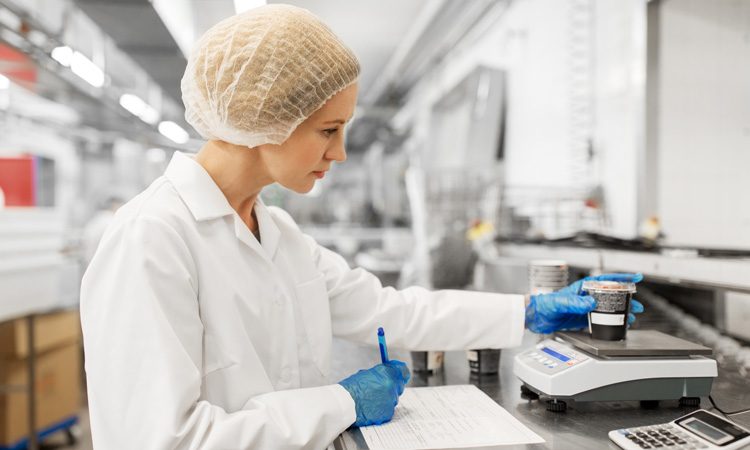What can food brands learn from environmental sustainability in the Nordics?
- Like
- Digg
- Del
- Tumblr
- VKontakte
- Buffer
- Love This
- Odnoklassniki
- Meneame
- Blogger
- Amazon
- Yahoo Mail
- Gmail
- AOL
- Newsvine
- HackerNews
- Evernote
- MySpace
- Mail.ru
- Viadeo
- Line
- Comments
- Yummly
- SMS
- Viber
- Telegram
- Subscribe
- Skype
- Facebook Messenger
- Kakao
- LiveJournal
- Yammer
- Edgar
- Fintel
- Mix
- Instapaper
- Copy Link
Posted: 2 October 2019 | Jaclyn Bowen | No comments yet
Jaclyn Bowen spoke to Oliver Amdrup from Puori about the high standards of environmental sustainability in the Nordics and how Puori regulates them.


Every year, Yale and the University of Columbia, in partnership with the World Economic Forum, produce an Environmental Performance Index (EPI). This report ranks 180 countries on 24 performance indicators across ten issue categories covering environmental health and ecosystem vitality. The EPI scorecard highlights global leaders and laggards in environmental performance, gives insight on best practices, and provides guidance for countries that aspire to be leaders in environmental sustainability. Whether heavy metals, water quality or air quality, the EPI outlines the global policies that are contributing to success and opportunity when it comes to improving public and environmental health. These policies also have an effect on food quality and safety regulations. Year over year, Nordic countries (Denmark, Finland, Iceland, Norway and Sweden) consistently rank in the top 10 percent on the EPI scorecard.
How does the Nordic commitment to environmental health and long-term sustainability effect their food safety and quality regulations? What can we learn from the Nordic approach that we can incorporate into our own quality assurance strategies? I spoke with Oliver Amdrup, CEO of the Danish dietary supplement company, Puori, to get his take.
Q: How are Denmark’s food regulations impacted by Denmark’s commitment to environmental sustainability?
A: Food production in Denmark is highly regulated by the government. In order to assure environmental sustainability, there are strict policies around many things. These include drinking water pollution; use of fertilisers, pesticides, cleaning agents and chemicals in production; and air pollution from animal production. Furthermore, leading Danish Health authorities and universities continuously monitor all aspects to control and determine if further regulation is needed.
All agricultural producers and food companies are monitored closely by the Danish government with mandatory audits, sometimes unannounced.
This may seem cumbersome, but it has forced Danish food companies to become highly advanced in all aspects of food production.
Denmark has been a front-runner in the implementation of environmental legislation for many years. The authorities have strived to implement all EU Directives in Danish legislation and, in many areas, Denmark’s national legislation exceeds the requirements of EU Directives. For example, Danish crop producers may only spread a maximum of 140kg of nitrogen in the form of pig slurry per hectare of land, compared to 170kg in other European countries. In contrast to EU standards, Danish farmers are also controlled by fixed limits for odour nuisance affecting neighbours and nearby residential areas.
The Danish authorities employ one of the world’s strictest agricultural control systems. In the environmental area, unannounced inspections are carried out to check land use, feed mixtures, fertiliser accounts, distance to watercourses, management of slurry and chemicals, as well as health and safety conditions.
Q: Now that Puori is operating in both Europe and the US, what are your observations of the differences in food policy?
A: In Scandinavia the consumers basically have high trust in the safe and nutritious products. People trust in governments to act as a watch dog. As an old farming country, we take pride in agricultural products and believe that farmers and food producers do their best to produce safe and nutritious products. We also have both the EU and national legislation to overlook the safety of consumers.
The US Food and Drugs Administration (FDA) do set regulatory limits for some aspects, but much is set by the individual company, who is responsible for their food safety profile. There seems to be more diversity in food quality in US. California seems to be closer to Europe in mindset, with stricter regulations.
In the US, products are filled with icons/certificates to ‘assure’ the consumers about the quality. You do not see that in Europe due the general trust that the label fairly reflects the product content.
Q: Given that Puori is a dietary supplement company, Puori must have to import some ingredients. What do you do to ensure you maintain those high standards?
A: It is inherent in our product philosophy that we always use pure, natural and superior ingredients and in order to always do so, we must regularly source ingredients globally. We use GMP and HACCP certified producers and base all ingredient sourcing on testing and data. Analytical lab checks at every step in the supply chain along with building long-term relationships with suppliers. You cannot fool data and test results. As a further promise to consumers, we third-party test all final products and lay it out openly as part of our consumer commitment to transparency.
Q: If you were to give our readers a list of the Top 5 things that the global food industry can learn from Puori’s commitment to environmental sustainability and approach to food safety and quality, what would those be?
- Be critical – use data (lab analysis) to ensure food safety and supplier selection
- Look at the long-term impact of what you do in all aspects. A quick win today may ruin the future
- Set ambitious standards for your product quality and use it as a competitive advantage
- Control your sourcing chain – trace ingredients as far back as possible in the value chain
- Test your final products using an accredited third-party laboratory using instrumentation with high levels of sensitivity and make data transparently available online for the consumers
About the Author
Jaclyn Bowen MPH, MS is the Executive Director of Clean Label Project and a food safety and quality systems engineer. Prior to coming to Clean Label Project, she spent 15 years at the World Health Organization Collaborating Centre, NSF International, working on the creation and enforcement of food safety and water quality standards and compliance systems.
Related topics
Clean Label, Food Safety, Health & Nutrition, Quality analysis & quality control (QA/QC), Regulation & Legislation, Sustainability









